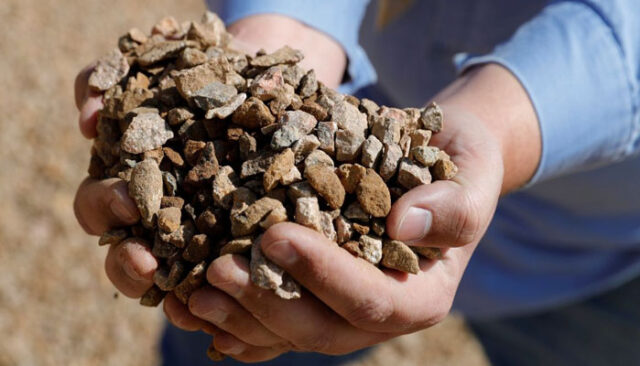
(3 minutes read)
The Namibian cabinet approved the prohibition of the export of certain critical minerals, such as unprocessed crushed lithium ore, cobalt, manganese, graphite, and rare earth minerals. This was stated by the Ministry of Information as part of its announcement of cabinet decisions.
The Namibian cabinet approved the prohibition of the export of certain critical minerals, such as unprocessed crushed lithium ore, cobalt, manganese, graphite, and rare earth minerals. This was stated by the Ministry of Information as part of its announcement of cabinet decisions.
The proposal, which had been submitted by Mines and Energy Minister Tom Alweendo for cabinet consideration. According to the announcement, Alweendo will have discretion when it comes to the export of small quantities of the specified minerals. Namibia now joins Zimbabwe in demanding that all locally mined lithium be processed locally. In December, Zimbabwe imposed a ban on raw lithium exports, aiming to stop the smuggling of lithium ore and encourage local processing.
African countries are determined to retain more of the value of their resources than they have in the past. This means not just mining them but also processing them before export, which economically is referred to as beneficiation. As the auto industry shifts towards electric vehicles—spurred by proposed bans on fossil-fuel cars beginning at the end of the decade—lithium prices and demand have soared.
China, the world’s top lithium refiner and a leading producer dominates the supply chain. However, Western governments and international companies are trying to challenge that dominance and see Africa’s lithium reserves as an opportunity. Lithium is set to be in high demand from 2025, with its value expected to reach N$13.9 billion. This can boost the country’s export earnings and revenue, as projected by a research firm. It is expected that lithium will contribute N$4.6 billion in revenue to the government in the extreme case and N$1.7 billion in the conservative case.
Read Also:
https://trendsnafrica.com/namibia-the-best-place-to-mine-ceo-andrada-mining/
https://trendsnafrica.com/n12-5bn-to-namibias-tax-and-economy-in-2022-a-de-beers-contribution/
In a Lithium Industry in Namibia report, the firm notes that the local lithium sector’s revenue to the government would be the largest compared to all other commodity mining operations in Namibia. In November of last year, Namibia signed a deal with the EU, ensuring the trade block’s access to the country’s rare earth metals to power the global transition to green energy. In April, German Chancellor Olaf Scholz announced that the country is willing to assist Namibia, among other nations with vast lithium reserves, in setting up a local lithium processing infrastructure.




